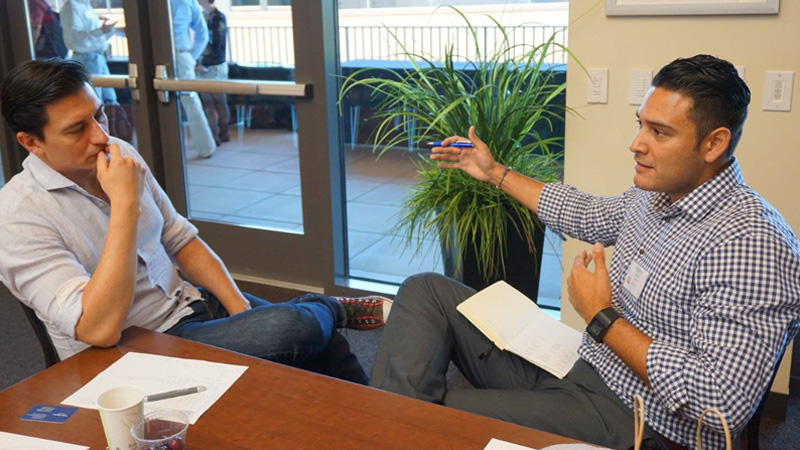Latino entrepreneurs face problems getting funding for their projects. Compared to other ethnic groups, the number of loan agreements granted from banks to Latinos is much lower. This is due to these people's low integration with communities where they are not the majority. The
WGBH Educational Foundation analyzed and pointed out solutions to overcome this difficulty.
Access to capital is a common and well-documented problem for Latino entrepreneurs nationwide. In a December study, the consulting firm
McKinsey found that “Latinos have the lowest rate of using bank and financial institution loans to start their businesses compared with other racial and ethnic groups,” rely more on personal funds, and receive a tiny fraction of the billions of dollars invested each year by venture capital firms.
With dramatic growth in the U.S. Hispanic population, the number of Hispanic-owned businesses is growing faster than in other ethnic groups. And Latino entrepreneurs are going far beyond the stereotypical blue-collar industries like restaurants, hotels, and construction.
A January report from
Stanford University concluded that Latino-owned businesses with employees are more likely than their white-owned counterparts to be technology innovators. The study found that 19% of Latino-owned firms develop and sell a tech or software product, compared to 14% of white-owned firms. Stanford research found that: “While credit is a common indicator for a borrower’s likelihood of paying back a loan, other measures of this likelihood are considered under one of the C’s of credit — capacity. In addition to income, and, by proxy, revenue of the business, lenders may consider employment history. A little over one-third of Latino Owned Businesses (LOB) are owned by immigrants, thus, employment history may be difficult to assess among other records, such as a long-standing credit history in the United States. Another measure used in assessing the capacity of the borrower to repay is the current debt-to-income ratio. LOBs have higher outstanding business debt on average than WOBs. Latinos have one-eighth the wealth of White households, making a Latino entrepreneur’s access to friends and family financing severely limited in comparison to White entrepreneurs. As a result, debt may be among the only startup financing options available. Prior research has attributed the level of startup capital as the most important factor contributing to success among Black-, Asian-, and White-owned businesses. In spite of higher levels of debt, if we consider the cash flow levels of LOBs versus WOBs, 87% and 88% report being able to maintain stable cash flow, thus, LOBs, on average, are not taking on more debt than they can manage.”
One of the ways to overcome the lack of financing is to join a network that supports Latino’s businesses, such as
ALPFA (Association of Latino Professionals For America), the first national Latino professional association in the United States, established in Los Angeles in 1972. ALPFA's main mission is to empower and develop Latino men and women as leaders of character for the nation in every sector of the global economy. According to its website, more than 95,000+ professional and student members across the country. In addition to networking and professional leadership development opportunities, its members have access to 50,000 paid summer internships through hundreds of Fortune 1000 corporate partners. ALPFA aspire to be the business partner of choice for companies seeking to hire and develop Latino talent.
ALPFA supports entrepreneurs beyond just finding investment capital. It tries to connect the entrepreneurs in areas where it might help them, such as finding an advisor or a mentor to help them achieve the next level of success or really start to, you know, start opening doors.
In the words of Carl Palme, a Mexican immigrant and a high-tech entrepreneur in Boston, the ALPFA group has offered him mutual support, connecting him to a range of business advice, mentorship opportunities and even cultural connections. “It is important for me to meet with other people who are similar to me culturally, who are going through the same kind of struggles. And by meeting them, they start opening up doors,” he said. “I mean, we’re probably struggling in the same exact way and just being able to talk to somebody about, ‘
Hey, how did you overcome this? You met this person — how did it go?”
Cooperative and collaborative networks can help Latinos find a new way to raise their business apart from the traditional finance credit system.
 jpmorganchase.com
jpmorganchase.com











